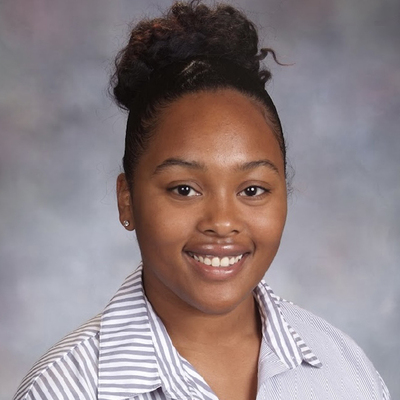Chaya Figueroa

Chaya Figueroa is a senior studying sociology and global affairs. She serves as President of Notre Dame’s QuestBridge chapter and is also on the board for the Black Student Association and Shades of Ebony. Last Fall, Chaya spent a semester in Greece where she interned with an international lawyer and researched how international law can be applied to the Tigray War and genocide in East Africa. After graduation, Chaya plans to go to law school in order to become an international human rights lawyer.
“I want to be able to actively partake in strengthening international law and creating policies to help groups like the Tigray people get the justice and attention deserved"
You’re very active on campus, from belonging to numerous student organizations to taking on a supplementary major. What has that level of involvement meant to you?
Being a part of QuestBridge, Shades of Ebony, and the Black Student Association has allowed me to embrace my identity while being here at Notre Dame. As a person of color and first generation, low-income student, it can be easy to feel isolated at a predominantly white institution, so I was glad to have these clubs to fall back on for camaraderie and support. I joined the board for these clubs to provide that same comfort to others like me.
Being in the Keough School of Global Affairs for a supplementary major has allowed me to learn more about my interest in international politics and human rights. I enjoy taking classes I probably would have never taken as a Sociology major, like International Economics for example.
Human rights is an important subject for you. How have you explored that in your studies?
I first became interested in human rights issues in 2020 after the Mai Kadra massacre in Tigray, Ethiopia. Since then, I’ve spent the past 3 years researching and studying rebellion, war, and genocide and how they affect innocent civilians.
I interned at the Karayanni Law Firm while in Greece, which is an international law firm that specializes in multiple services including criminal law. While there, I researched how the Rwandan Civil War/ genocide and the International Criminal Tribunal for Rwanda can be applied to determine the crimes and appropriate penalties for the Tigray War/ genocide. I loved my time at the firm because it was great being able to hear about what I’ve been interested in from the perspective of an international lawyer, as well as get a taste of being one myself.
You’re also a student researcher in the International Race and Rights Lab.
Yes. I’ve been researching relations between the NAACP and Japan, China, and Russia. The purpose of this research is to find how civil rights advocates have decided on/ against working with countries that have promoted similar values in the past but don’t have the best relationship with the United States. I’ve learned a lot about how the civil rights movement and international relations like the Cold War heavily influenced each other, because before I thought the two events just ran parallel to each other on the timeline.
What are your hopes for a career after Notre Dame?
I want to be able to actively partake in strengthening international law and creating policies to help groups like the Tigray people get the justice and attention deserved. I hope to help condemn war crimes and penalize the actors of genocide across the globe but especially in Ethiopia, which has fallen into a cycle of impunity.